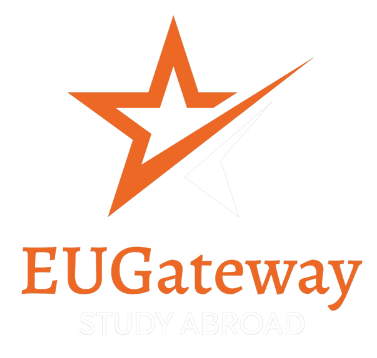- Call us on +91 85859 54773
- email us at counsellors@eugateway.in



It’s easy to understand why Europe is one of the most popular postgraduate study locations for international students from all around the world. Studying in Europe will provide you with the opportunity to benefit from the decades of academic renown and experience acquired at the world’s oldest universities.
Your journey will allow you to study other languages, get job experience overseas, and demonstrate to prospective employers that you have the skills and experience essential to thrive in a globalized society. Study in Europe to enjoy the benefits of decades of academic renown and expertise.
What is the structure of higher education in Europe?
Each nation has its own higher education system, although they are all members of the European Higher Education Area (EHEA). The EHEA system contributes to the compatibility of higher education systems across Europe, allowing students, researchers, and professors in Europe to interact and study free Masters in Europe or work abroad more readily.
Most study programmes include lectures and courses and assessments via essays, examinations, and homework. Many additionally include time spent working in the industry or on industry-related initiatives.
A doctorate’s goal is to break new ground – to generate new knowledge and ideas or undertake unique research to assist progress in your topic. Throughout your study, you may be asked to write articles and submit a thesis for review.
What is the structure of higher education in Europe?
With close to 15 years of experience in International Higher Education Recruitment, Sales & Marketing in India & South East Asia market, leading teams for special projects, heading the Regional office for a renowned University, Liaising with various Governmental & trade bodies and an MBA in International Business Consulting from Hochschule Offenburg (Germany), Sumit founded EUGateway in 2017 to support students from India in there endeavor to study in Europe and masters in Europe. In his rich experience of last 15 years, Sumit not only dealt with education sector, but also had a keen interest in Food & Beverages industry, leading him to found clutch of Indian start-ups (which were ahead of there times). He is now an International Certified Career Coach from UCLA Ext. mentoring students build there profile and find the right education & career opportunities abroad.
The Bologna Process and the European Higher Education Area (EHEA)

What is the Bologna Process?
The Bologna Process is still ongoing, although it began in 1999 with an agreement signed – predictably – at Italy’s University of Bologna (the oldest European university in continuous operation).
The Bologna Process is still ongoing, although it began in 1999 with an agreement signed – predictably – at Italy’s University of Bologna (the oldest European university in continuous operation).
Education Ministers from 29 nations signed the original ‘Bologna Declaration,’ establishing the European Higher Education Area. New conferences are conducted in European nations every two to three years, and additional countries have been recognized as parties to the Bologna accords and members of the European Higher Education Area.
Education Ministers from 29 nations signed the original ‘Bologna Declaration,’ establishing the European Higher Education Area. New conferences are conducted in European nations every two to three years, and additional countries have been recognized as parties to the Bologna accords and members of the European Higher Education Area.

What is the EHEA?
The European Higher Education Area (EHEA) is made up of nations that have signed the Bologna Declaration and committed to using a standardized structure for university credentials (including Masters degrees).
The European Higher Education Area (EHEA) is made up of nations that have signed the Bologna Declaration and committed to using a standardized structure for university credentials (including Masters degrees).
The EHEA has 49 nations (including the Vatican City) as of 2021.
The EHEA has 49 nations (including the Vatican City) as of 2021.
What are the implications of the Bologna Process and the EHEA for Masters in Europe for students?
The Bologna Process and the establishment of the EHEA provide three major benefits to European Masters students:
Your Master’s degree will be delivered in a three-cycle format, often as a postgraduate qualification spanning one to two years. You will be eligible to study for a PhD after you have completed your Masters in Europe.
International quality assurance criteria will ensure the value and acknowledgement of your Master’s programme.
You will benefit from increased student mobility throughout the EHEA, such as the simple recognition of current European credentials, adopting a single European Credit Transfer and Accumulation System (ECTS), and chances for joint degree programmes and financed foreign exchanges.
The European Credit Transfer and Accumulation System (ECTS)
If you are pursuing a Masters degree in Europe, you may discover that your course is structured by the European Credit Transfer and Accumulation System (ECTS).
The European Credit Transfer and Accumulation System (ECTS)
If you are pursuing a Masters degree in Europe, you may discover that your course is structured by the European Credit Transfer and Accumulation System (ECTS).
The ECTS provides a standardized framework for assessing academic achievement in European higher education institutions. The premise is that wherever you choose to pursue a Masters in Europe, your academic work should be universally recognized through its ECTS credit worth.
What are ECTS credits, and what do they imply for Masters students?
Mobility and recognition – The ECTS value of your Master’s degree will be recognized globally, allowing you to apply for PhD or job possibilities in Europe and beyond.
What are ECTS credits, and what do they imply for Masters students?
Mobility and recognition – The ECTS value of your Master’s degree will be recognized globally, allowing you to apply for PhD or job possibilities in Europe and beyond.
Flexibility and opportunity – The ECTS make it simple to transfer learning between institutions or nations and receive credit for work completed anywhere in Europe. Studying for a Master’s degree in Europe is now possible thanks to the ECTS.
Student-centered learning — Because ECTS credits are computed based on learning hours; they can correctly reflect the growing amount of independent and self-directed study required for a Masters degree.
Comparability – The adoption of the ECTS across different European nations makes it easier to compare Masters degrees globally.
Flexibility and opportunity – The ECTS make it simple to transfer learning between institutions or nations and receive credit for work completed anywhere in Europe. Studying for a Master’s degree in Europe is now possible thanks to the ECTS.
Student-centered learning — Because ECTS credits are computed based on learning hours; they can correctly reflect the growing amount of independent and self-directed study required for a Masters degree.
Comparability – The adoption of the ECTS across different European nations makes it easier to compare Masters degrees globally.
What subjects are available to students?
If you are pursuing a Masters degree in Europe, you may discover that your course is structured by the European Credit Transfer and Accumulation System (ECTS).
The European Credit Transfer and Accumulation System (ECTS)
Mobility and recognition – The ECTS value of your Master’s degree will be recognized globally, allowing you to apply for PhD or job possibilities in Europe and beyond.
Flexibility and opportunity – The ECTS make it simple to transfer learning between institutions or nations and receive credit for work completed anywhere in Europe. Studying for a Master’s degree in Europe is now possible thanks to the ECTS.
Student-cantered learning — Because ECTS credits are computed based on learning hours; they can correctly reflect the growing amount of independent and self-directed study required for a Masters degree.
Comparability – The adoption of the ECTS across different European nations makes it easier to compare Masters degrees globally.
Flexibility and opportunity – The ECTS make it simple to transfer learning between institutions or nations and receive credit for work completed anywhere in Europe. Studying for a Master’s degree in Europe is now possible thanks to the ECTS.
Student-cantered learning — Because ECTS credits are computed based on learning hours; they can correctly reflect the growing amount of independent and self-directed study required for a Masters degree.
Comparability – The adoption of the ECTS across different European nations makes it easier to compare Masters degrees globally.
What time of year do European European Programmes begin?
The academic year generally begins in September or October and ends in June, varying across Europe. Some study programmes have January/February start dates as well.
What are the implications of the Bologna Process and the EHEA for Masters students?
The academic year generally begins in September or October and ends in June, varying across Europe. Some study programmes have January/February start dates as well.
What are the implications of the Bologna Process and the EHEA for Masters students?
The continent of Europe is home to thousands of universities, research organizations, and higher education institutions. Namely: Austria, Belgium, Bulgaria, Croatia, Denmark, Finland, France, Germany, Hungary, Italy, to name a few.
The European Union has 24 official languages. However, most European nations offer study programs taught in English as well as other languages.
The academic year generally begins in September or October and ends in June, varying across Europe. Some study programmes have January/February start dates as well.
Top selections for the finest study abroad programmes in Europe And masters in europe
To the greatest fit for your needs, budget, and expectations:
- Germany
- France
- Spain
- Italy
- Sweden
- Netherlands
Germany is one of the finest destinations in Europe to study abroad, especially if you want to save money because there are no tuition fees at public universities. All you’ll have to pay is an administrative fee, which will be invoiced each semester. This applies to both students from other areas of Europe and those from outside the European Union.
France has over ten universities listed in the 2019-19 QS World University Rankings. Although the bulk of the programs are taught in French, there are over 1,000 English courses available. France is likewise a country where tuition is inexpensive, and education is of good quality. When you go to France, you will discover some of the cheapest colleges in the world, which means you can spend more of your money on exploring and having fun while studying abroad.
One of the numerous benefits of studying abroad in one of Spain’s many excellent institutions, as in other countries in Europe, is the inexpensive cost of tuition. In comparison to the United States and the United Kingdom, tuition in Spain is significantly more inexpensive, and you will most likely pay a fraction of what you would have to pay for a comparable program back home. To save even more money, stick to smaller country communities, as larger and more popular cities are more expensive. However, if you are willing to invest extra money to get it all, look at schools in Madrid, the capital city. Just be prepared to practice your Spanish, as many of the programs in the nation are taught in Spanish. The Universidad Autonomy de Madrid, Universitas de Barcelona, and Universitas Pompeo Fabra are among the best universities in Spain.
Some of the most famous and oldest universities in the world are located in the nation. Popular locations for students include Milan, Rome, Florence, and Venice, although other rural villages are to visit. There are 89 universities in the nation and several academies and polytechnics, so there are various majors to select from, including engineering, art and design, and architecture. Not all schools will have complete English programs, although they may provide English classes. Just be prepared to spend a little more than you would in Central European nations, but rest assured that the expenses in Italy will most likely be far lower than those in locations like the United States and the United Kingdom.
If you are a student from another country, such as the United States, and you attend school in Sweden, you may be eligible to obtain a PhD degree for free. Furthermore, many university programs in the nation are taught in English, and there are several possibilities to earn scholarships. You will also be able to pick from some of the world’s finest universities, including Uppsala University, Lund University, and KTH Royal Institute of Technology. In addition to scholarship opportunities, PhD positions are generally compensated, allowing you to attend school for free while still earning a paycheck.
The Netherlands is yet another popular European study abroad location for students. It is also an excellent choice for students from the United Kingdom because it is inexpensive and near to London. A 45-minute flight from London will take you to the Netherlands, the largest supplier of English-taught programs in continental Europe. In locations like Amsterdam, you may pick from over 2,100 international education programs while also enjoying lots of art and culture. The Delft University of Technology, Amsterdam, and Wageningen University and Research Center are among the best.

